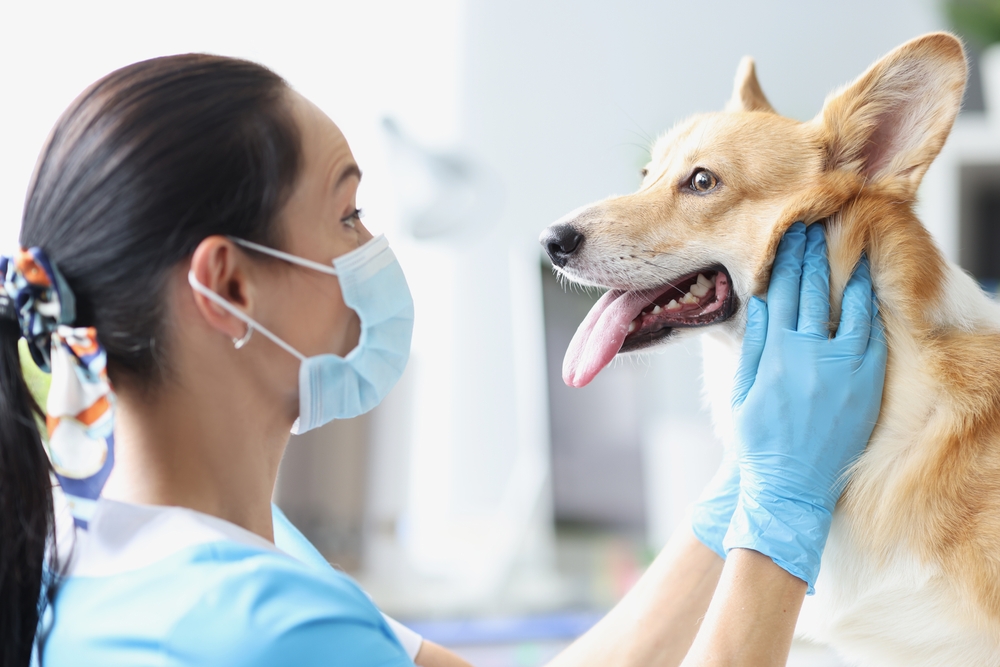
A jaw fracture in pets is a serious condition that can arise from various incidents, such as car accidents, falls, or trauma during play. If your pet suffers a jaw injury, prompt and informed action is essential to ensure their comfort, safety, and optimal recovery.
Recognizing the Signs of a Jaw Fracture
Jaw fractures can be challenging to identify, but common signs in pets include:
Reluctance to eat or difficulty chewing
Drooling excessively
Misaligned or loose teeth
Swelling around the jaw area
Whimpering or signs of pain when touched around the mouth
Visible deformities or bleeding in the mouth
If you notice any of these symptoms, it’s crucial to bring your pet to an emergency vet as soon as possible for a comprehensive assessment.
Immediate Steps to Take Before Getting to the Vet
If you suspect your pet has a jaw fracture, stay calm and take the following steps to stabilize them for the trip to the veterinary clinic:
1. Restrict Movement: Minimize your pet’s movement to avoid worsening the injury. Keep them in a small, enclosed space during transport.
2. Avoid Handling the Jaw: Attempting to realign the jaw or move it can cause more harm. Leave all handling and adjustments to the veterinary team.
3. Apply Gentle Support: You can gently support the jaw with a soft cloth if necessary, but avoid applying pressure.
4. Avoid Food and Water: While it may seem comforting to offer food, it’s best to withhold any food or water until after a vet’s examination.
Diagnostic Steps at the Veterinary Clinic
Once you arrive at Pet Hospital of Redlands + Urgent Care, we will perform a thorough evaluation to understand the extent of the injury. Diagnostics for jaw fractures often include:
Physical Examination: A gentle examination to locate the fracture, assess alignment, and check for other potential injuries.
Imaging: X-rays or CT scans are commonly used to determine the exact location, alignment, and severity of the fracture.
With these diagnostic tools, our team can create a detailed treatment plan to ensure the best possible outcome for your pet.
Treatment Options for Jaw Fractures in Pets
The treatment approach for jaw fractures depends on the fracture type, location, and your pet’s overall health. The options typically include:
Wiring and External Fixators: For minor to moderate fractures, a wire may be used to realign the jawbone. In some cases, an external fixator is used, providing stability from the outside to promote proper healing.
Surgical Intervention: Severe fractures may require surgery to place plates or screws in the jaw to stabilize the bone and ensure it heals correctly.
Pain Management and Antibiotics: Pain control is critical to keep your pet comfortable during the healing process. Additionally, antibiotics may be prescribed to prevent infections, especially if the fracture involves any open wounds.
Soft Diet: Pets with jaw fractures often require a special diet for weeks or months after treatment. Your veterinarian will recommend easy-to-eat, soft foods that won’t strain the healing jaw.
Contact Pet Hospital of Redlands + Urgent Care Today
At Pet Hospital of Redlands + Urgent Care, we understand the stress and concern of handling a pet emergency. Our compassionate team is equipped to manage jaw fractures and other urgent injuries with specialized care, pain management, and advanced surgical options. A jaw fracture can be frightening, but timely intervention and proper management can make all the difference.
If you ever suspect your pet has a jaw injury, trust Pet Hospital of Redlands + Urgent Care to provide the care, expertise, and support they need. Visit our facility in Redlands, California, or call (909) 363-1617 today.









